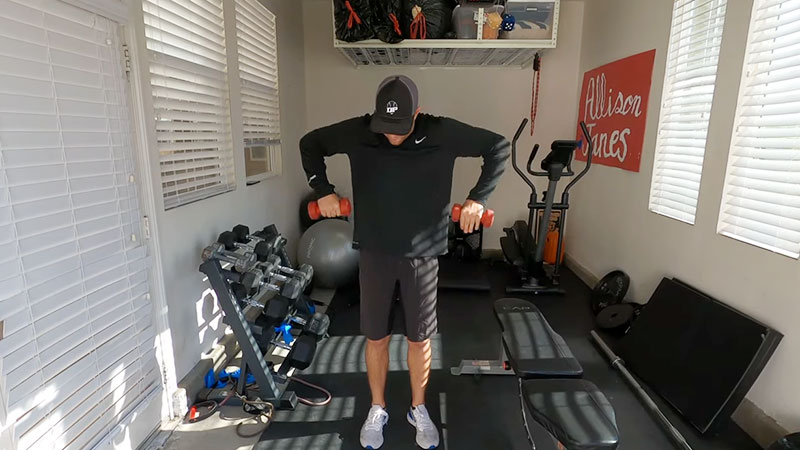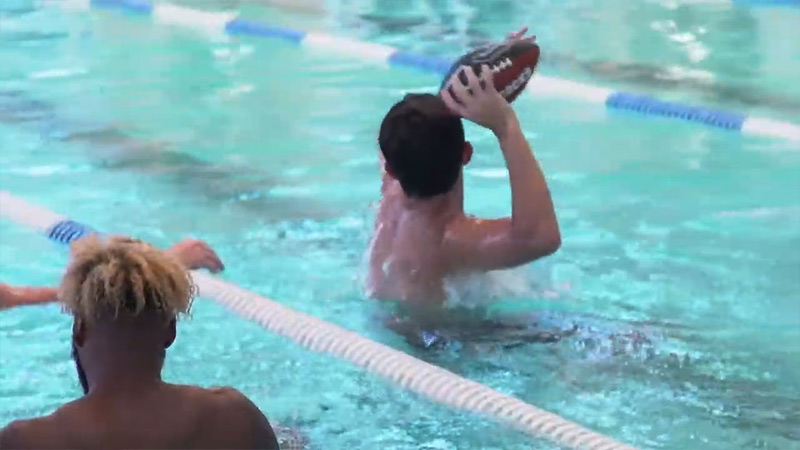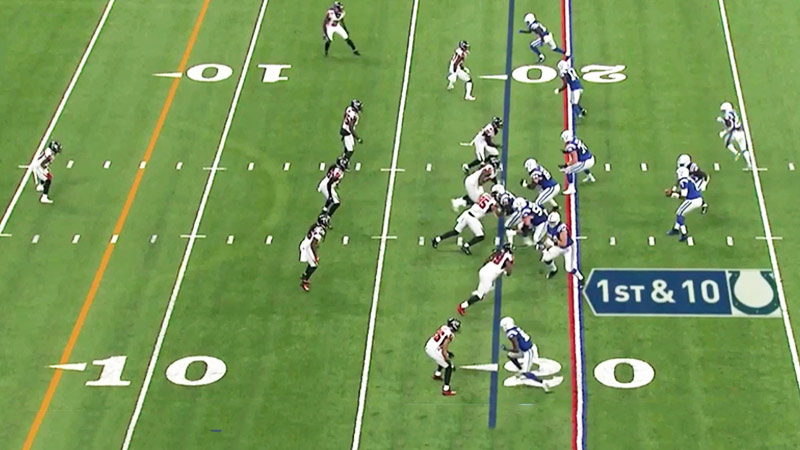Football is a physically demanding sport that requires strength, speed, agility, endurance, and coordination. To perform at a high level, players need to undergo rigorous training and conditioning that prepares them for the challenges of the game. This article provides an in-depth look at the various aspects of football training and conditioning and their importance in achieving success on the field.
Warm-up and Stretching Exercises
The warm-up and stretching exercises are the foundation of any football training session. These exercises help players prepare their muscles and joints for the intense physical demands of the sport. Warm-up exercises such as jogging, skipping, and light resistance training help increase the body temperature, improve blood circulation, and increase muscle flexibility.
Stretching exercises help to reduce the risk of injury by loosening up tight muscles and preparing them for the intense workout ahead.
Strength Training
Strength training is essential for football players as it helps build muscle strength and power, which are crucial in the sport. Weightlifting exercises such as squats, deadlifts, and bench presses help increase muscle size and power, while bodyweight exercises such as push-ups, pull-ups, and chin-ups help build upper body strength and stability.
Strength training should be incorporated into the football player’s training program to ensure they are physically ready to perform at their best.

Speed and Agility Training
Speed and agility are critical components of football success. Speed training helps players improve their speed, acceleration, and reaction time, while agility training helps players develop their balance, coordination, and ability to change direction quickly. Speed and agility training can be done through drills such as sprints, shuttle runs, and agility ladders. These drills help players develop the necessary skills to perform at a high level in the game.
Endurance Training
Endurance is crucial for football players as it enables them to sustain their high level of performance for an extended period of time. Endurance training can be done through activities such as long-distance running, cycling, or swimming. These activities help increase the player’s cardiovascular endurance, which is essential for performing at their best in the sport.
Plyometric Training
Plyometric training is a type of high-intensity training that helps improve the player’s explosive power and speed. Plyometric exercises such as jump squats, box jumps, and plyometric push-ups help players develop the power and agility they need to perform at a high level in the sport. This type of training is especially important for players who need to jump, run, and change direction quickly during the game.
Mental Preparation
Mental preparation is just as important as physical preparation for football players. Mental training helps players develop the mental toughness, focus, and confidence they need to perform at their best in the sport. Mental training can be done through visualization exercises, goal setting, and positive self-talk. By incorporating mental preparation into their training program, players can increase their chances of success on the field.

Nutritional Support
Nutrition plays a critical role in football training and conditioning. A balanced diet that includes plenty of protein, carbohydrates, and healthy fats helps players build muscle, recover from workouts, and maintain their energy levels. Proper hydration is also essential for football players, as it helps maintain their performance and reduces the risk of dehydration.
Rest and Recovery
Rest and recovery are crucial elements of any football training program. Players need adequate time to rest and recover between training sessions and games to avoid overtraining and burnout. Adequate sleep and proper nutrition are essential for recovery, as they help the body repair and rebuild damaged muscle tissue.
In addition, active recovery techniques such as stretching, foam rolling, and massage can help reduce muscle soreness and improve flexibility. Players should also incorporate rest days into their training schedule to allow their bodies to fully recover and prevent injury.
Ball Handling and Control Drills
Ball handling and control are essential skills for football players. Drills that focus on ball handling and control help players develop their touch, technique, and confidence with the ball. These drills can include dribbling exercises, passing exercises, and shooting exercises. Players should practice these drills regularly to improve their ball handling skills and become more effective on the field.
Set Piece and Corner Kick Training
Set pieces and corner kicks can often be the deciding factor in close football matches. Training drills that focus on set pieces and corner kicks can help players develop the skills and understanding they need to execute these important plays. Players should practice these drills in a game-like scenario to help them understand the timing and technique required to score from set pieces and corner kicks.
Scrimmages and Small-sided Games
Scrimmages and small-sided games are an important part of football training as they provide players with an opportunity to practice the skills they have learned in a game-like scenario. These games help players develop their tactical awareness, teamwork, and decision-making skills, as well as allowing them to put their individual skills into practice. Players should participate in these games regularly to help them develop their overall performance.
Video Analysis
Video analysis is a useful tool for football players to help them understand their strengths and weaknesses, as well as the strengths and weaknesses of their opponents. By reviewing footage of their own performances, players can identify areas they need to improve, as well as areas they excel in.
Video analysis can also help players develop their tactical awareness, as they can observe the tactics used by their opponents and learn how to counter them.

Psychological Preparation
Psychological preparation is an often-overlooked aspect of football training, but it is critical for success in the sport. Psychological preparation can help players develop the mental toughness, focus, and confidence they need to perform at their best. Players can prepare mentally by setting goals, visualization exercises, and mindfulness practices.
By incorporating psychological preparation into their training program, players can increase their chances of success on the field.
Pre-season Training
Pre-season training is an important time for football players to get back into the swing of things and build up their fitness levels before the start of the season. This training period should include a combination of strength and conditioning exercises, as well as technical and tactical drills. Pre-season training should also be a time for players to work on any areas of their game that need improvement. Players should aim to be in peak physical and mental condition by the start of the season to give themselves the best chance of success.
In-season Training
In-season training is critical for maintaining the fitness levels and performance of football players. In-season training should focus on injury prevention, recovery, and maintaining strength and fitness levels.
Players should also continue to practice technical and tactical drills, as well as participate in small-sided games to maintain their game-like skills. In-season training should be well-rounded and balanced, with adequate rest and recovery built into the schedule to prevent injury and maintain performance.
Post-season Training
Post-season training is an opportunity for football players to reflect on their performance and identify areas they need to improve. This training period should focus on strength and conditioning, as well as technical and tactical development. Players should also work on any areas of their game that need improvement, as well as incorporate rest and recovery into their training schedule.
The post-season is a great time for players to take a break from the game, but it is also important to maintain their fitness levels and stay in shape for the next season.
Team Training
Team training is an important aspect of football preparation as it helps players develop their teamwork, communication, and understanding of their roles and responsibilities on the field. Team training should include both technical and tactical drills, as well as scrimmage and small-sided games. Team training should also be a time for players to bond and build relationships, which is critical for success on the field.
FAQs
- What is the best time to train for football?
The best time to train for football depends on your schedule and personal preferences. However, it is recommended to train in the mornings or early afternoons, as this is when your body is at its peak performance. It is also important to allow for adequate rest and recovery time to prevent injury and promote optimal performance. - What should a football training program include?
A comprehensive football training program should include warm-up and stretching exercises, strength and conditioning, speed and agility training, endurance training, plyometric training, ball handling and control drills, set piece and corner kick training, scrimmages and small-sided games, video analysis, psychological preparation, pre-season training, in-season training, post-season training, and team training. - How often should I train for football?
The frequency of training for football will depend on the individual and the stage of the season. However, it is generally recommended to train at least three to four times per week, with additional conditioning and recovery exercises incorporated into your training schedule. - What is the importance of rest and recovery in football training?
Rest and recovery are critical for preventing injury and promoting optimal performance in football. Adequate rest and recovery allow the body to repair and rebuild damaged muscle tissue, reduce muscle soreness, and improve flexibility. Incorporating rest days into your training schedule is essential for success in football. - How can I improve my mental preparation for football?
Improving your mental preparation for football can include setting goals, visualization exercises, and mindfulness practices. Players can also work with a sports psychologist to develop mental toughness, focus, and confidence. Mental preparation is an often-overlooked aspect of football training, but it is critical for success in the sport.
Conclusoin
Football training and conditioning is a critical aspect of success in the sport.
A well-rounded training program that incorporates warm-up and stretching exercises, strength and conditioning, speed and agility training, endurance training, plyometric training, ball handling and control drills, set piece and corner kick training, scrimmages and small-sided games, video analysis, psychological preparation, pre-season training, in-season training, post-season training, and team training is essential for players to perform at their best.
By following a comprehensive training program, football players can achieve their goals and become top-performing athletes.
Football training and conditioning is a crucial element of success in the sport. A comprehensive training program that includes warm-up and stretching exercises, strength training, speed and agility training, endurance training, plyometric training, mental preparation, and nutritional support is essential for players to perform at their best.
Adequate rest and recovery are also important for preventing injury and ensuring optimal performance. By following a well-rounded training program, football players can achieve their goals and perform at the highest level.







